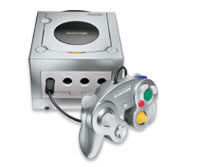 We’ve all known for a long time that TV as we knew-and-loathed-it was under pressure, as people discovered there were things more rewarding in their lives than passively sitting in a darkened room, being bathed in light from a box in the corner of the room, watching whatever the channel controller decided to ‘entertain’ them with.
We’ve all known for a long time that TV as we knew-and-loathed-it was under pressure, as people discovered there were things more rewarding in their lives than passively sitting in a darkened room, being bathed in light from a box in the corner of the room, watching whatever the channel controller decided to ‘entertain’ them with.
In a rather self-serving survey, “Digital Gaming in America”, Ziff Davis Media attempts to further fan the flames of this long lasting discussion, as they reveal that video gamers are watching less TV than they did previously, and will continue to reduce the amount they are consume.
Before you run to your boss, waving a printout of this story in your hand, proclaiming the near-death of TV. The results of the survey do reflect the general trend of what is happening, but do bear in mind the size of survey – 1,500 households (ie people who happened to be in, answered the phone, and had nothing better to do than answer a series of questions), compared with 295m people that live in America isn’t what you’d call statistically robust.
What did they find? About a quarter reduced their TV watching over the last year, with about a further fifth planning to do the same in the coming year. To put some hours against that, they estimate that there’s been a two hours per week drop over the last year to 16 hours a week this year, around a 10% drop.
The wolf isn’t quite at the door of TV. Looking at the hours/week, the reduced figure is still over 2.25 hours of TV a day, quite considerable when you consider what other task people do for that period of time, beyond working and sleeping.
 In 2003 the BBC did some far more interesting research in this area. Of course they found that numbers of hours watched dropped, but what we found significant was that those hours that were being spent in front of the TV, weren’t dedicated to watching it.
In 2003 the BBC did some far more interesting research in this area. Of course they found that numbers of hours watched dropped, but what we found significant was that those hours that were being spent in front of the TV, weren’t dedicated to watching it.
This was particularly true of the younger viewers (34 and under) who were doing other things – texting their friends, Web browsing, talking on the phone, playing games on portable games systems – while in front of the box. They would dip in and out of the TV programme as it was on, occasionally letting it grab their attention – treating it far more like radio. It doesn’t take a great deal of imagination to figure that their attention would be elsewhere during the advert breaks.
Where the Ziff Davis survey does become more interesting is looking at gaming on mobile phones, particularly as this report is US-centric and the market isn’t very mature. A surprising 42% of surveyed gamers had bought games for their phones, and that they’d spent an average of US$13 (~€10, ~£7) each over the last three months.
An additional surprise for us was the length of time the games had been played on the mobile phones – 19 minutes per gaming session. Given the size of the display and general difficulty of playing games on such restricted controls, this is a revelation.
The split of games played was Arcade (57%), Card (44%) and Puzzle (37%) – another suprise for us given the device’s restrictions mentioned in the paragraph above. We suspect that the dominance of arcade games will reduce as players realise thinking games will be more rewarding than twitching with little buttons.
Oh … by the way Ziff Davis just happen to publish the games magazine, Electronic Gaming Monthly, Computer Gaming World, Official U.S. PlayStation Magazine and 1UP.com – and their ad sales people are just sitting there waiting to hear from you if you want to shift your advertising budget from TV to their mags.
Ziff Davis Video Game Survey: Gamers Continue to Cut TV Viewing
BBC – TV’s Tipping Point: Why the digital revolution is only just beginning